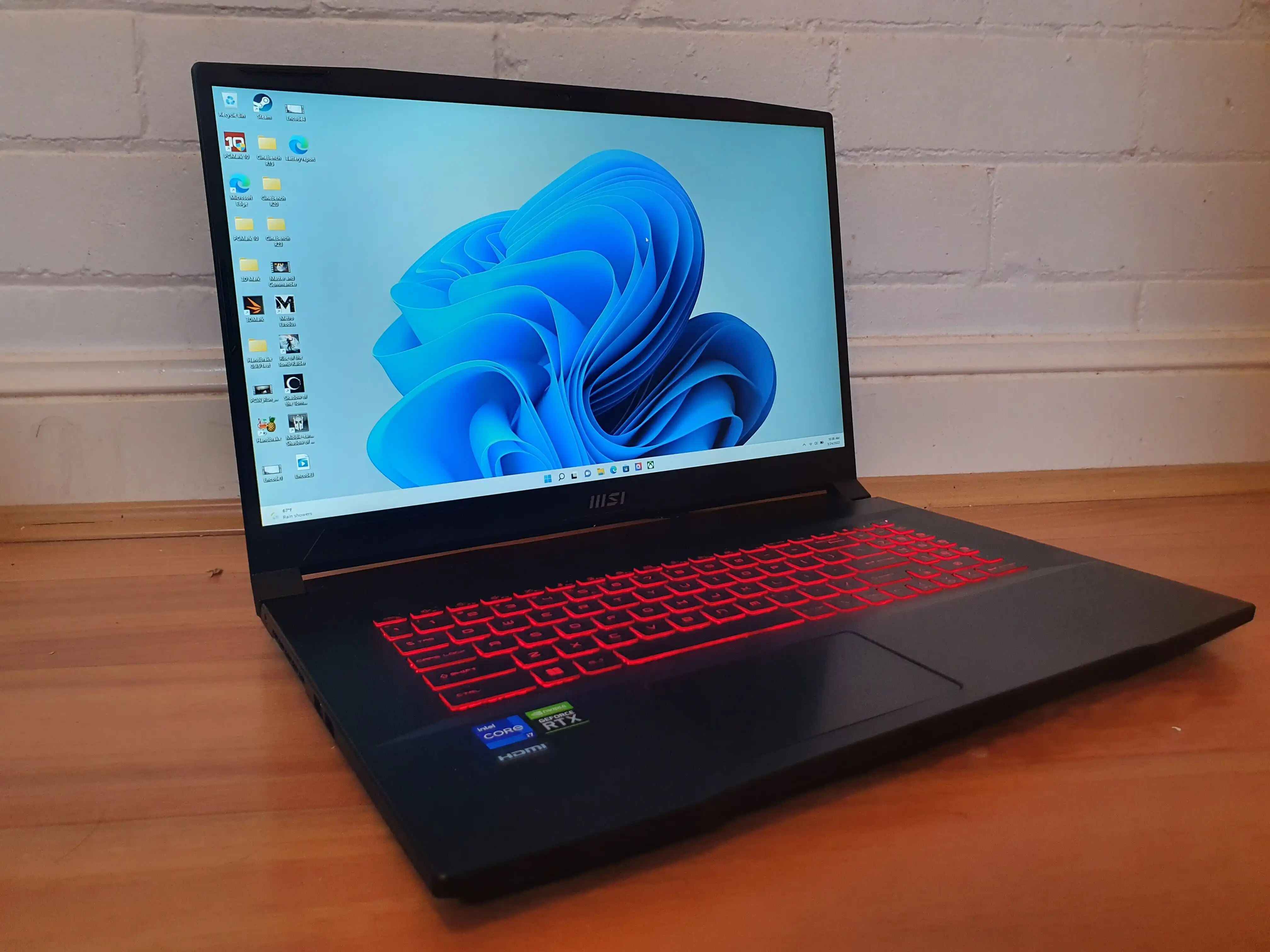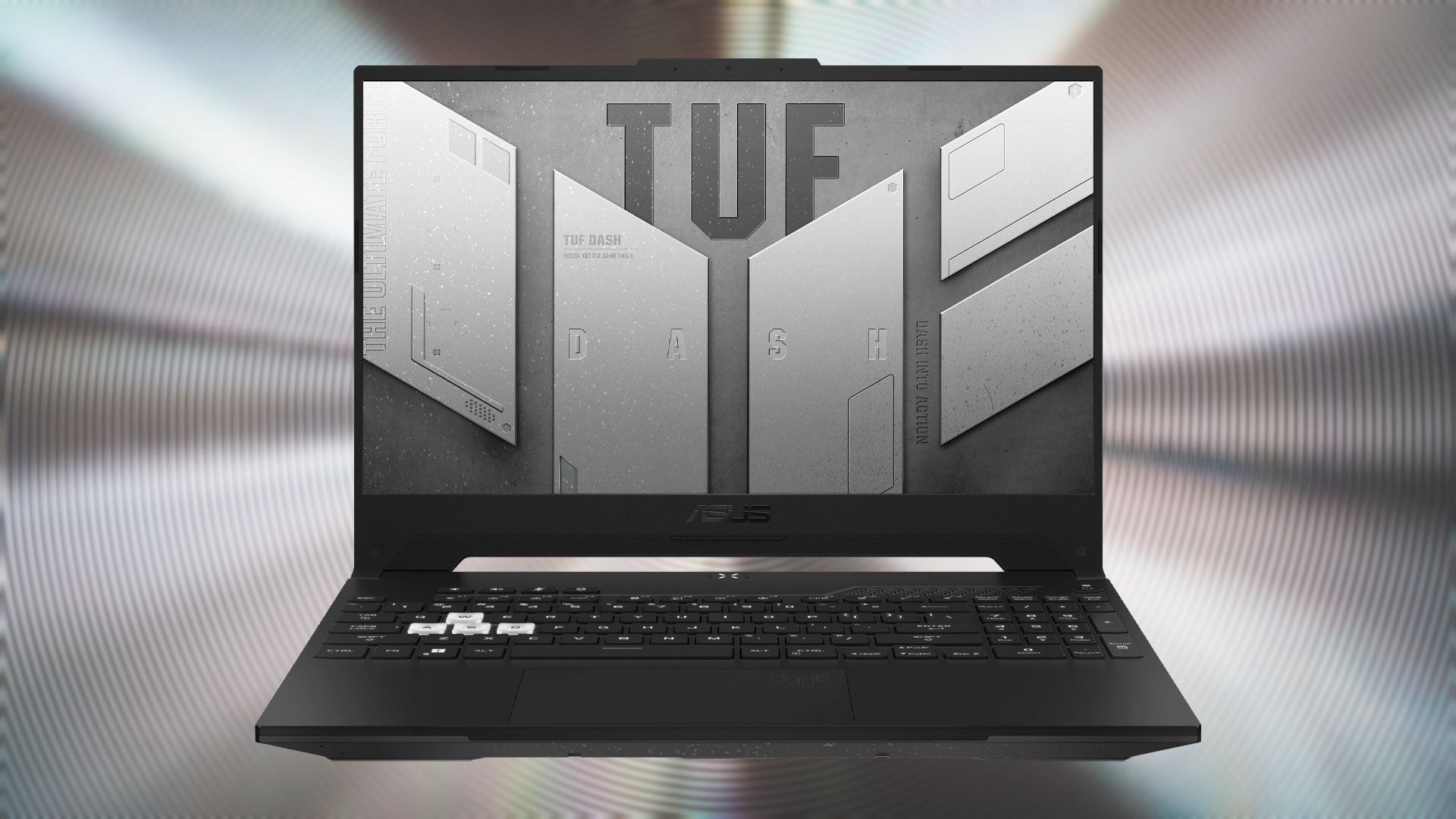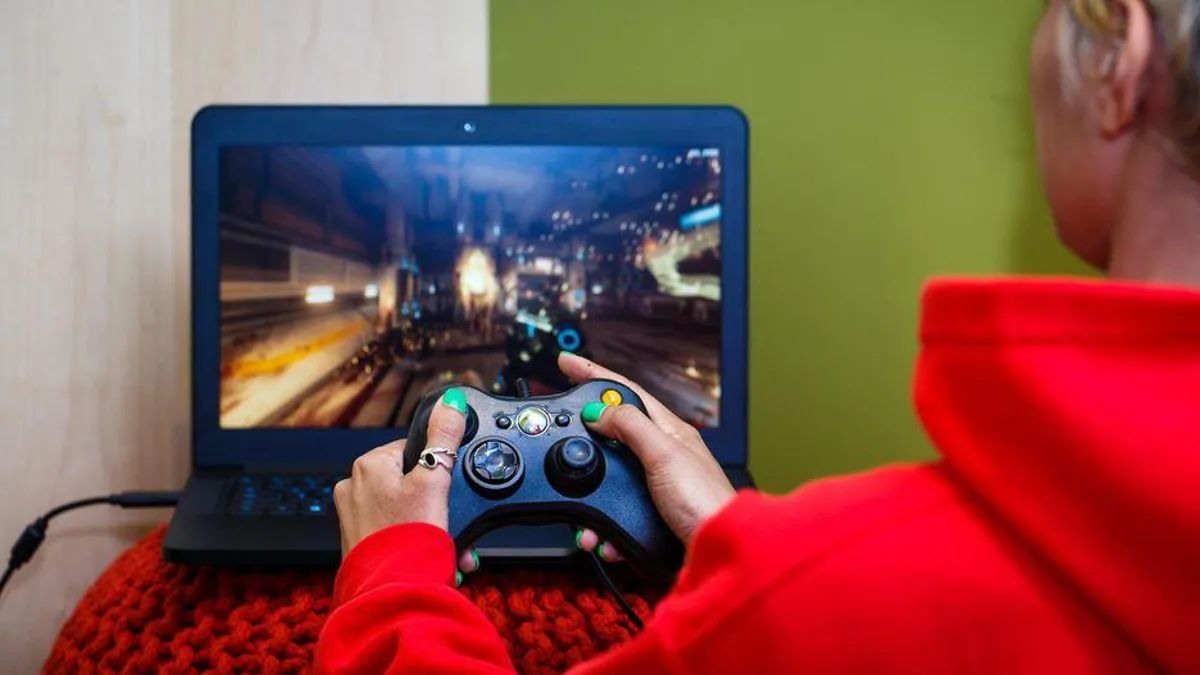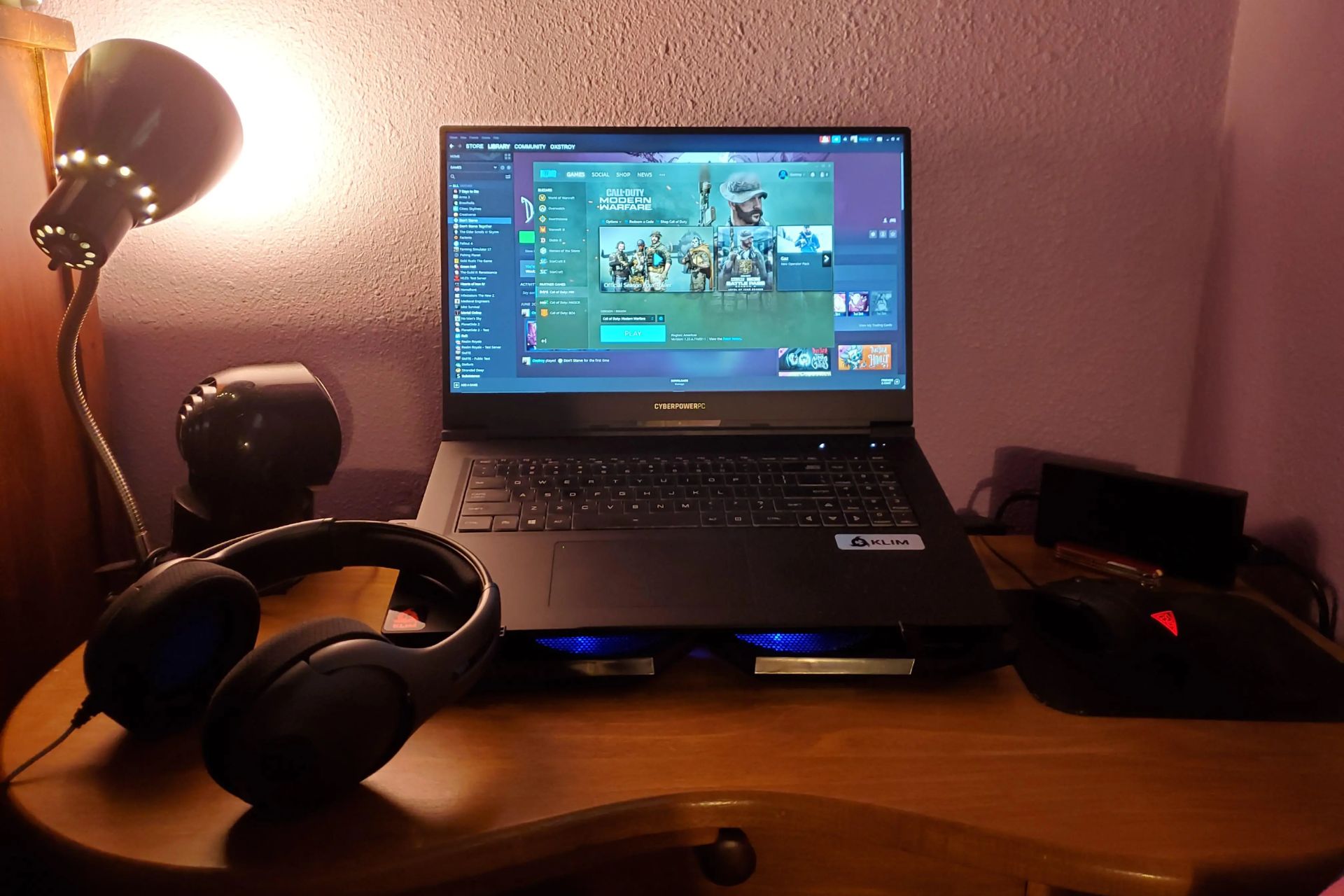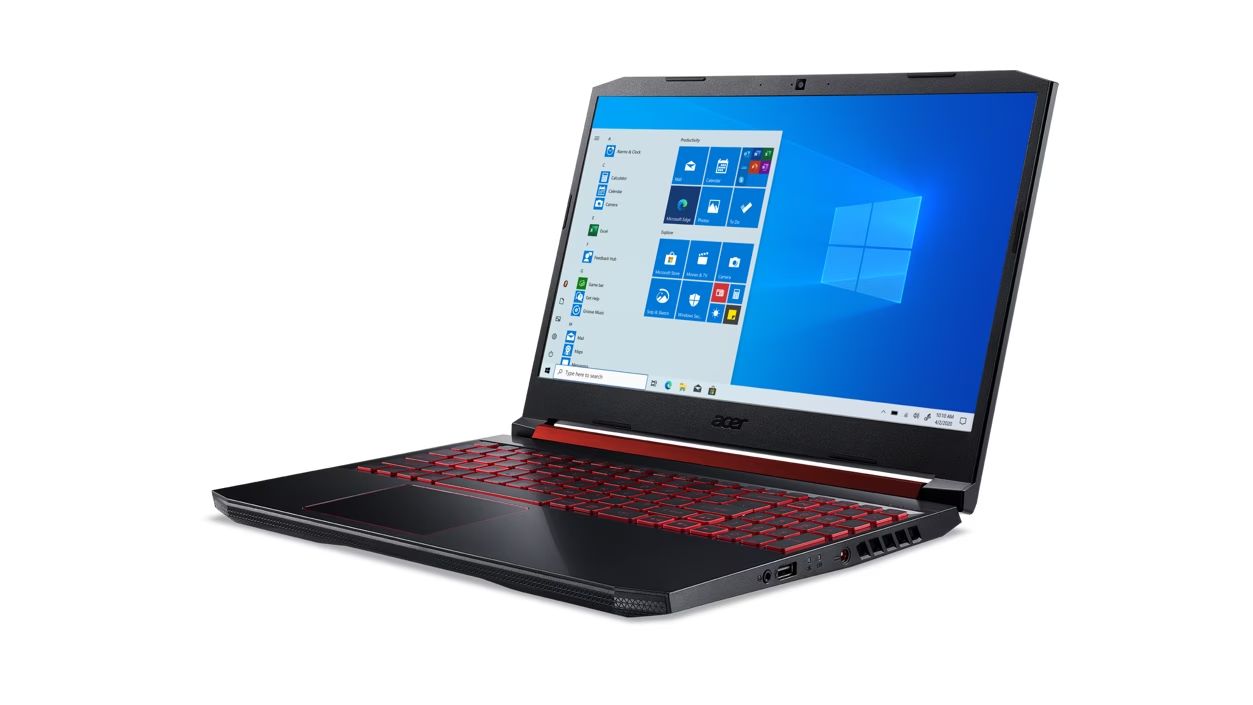Introduction
Gaming laptops have become increasingly popular among gamers and technology enthusiasts alike. With their powerful hardware and advanced features, these portable devices allow users to enjoy high-quality gaming experiences wherever they go. Whether you’re a professional gamer or simply someone who enjoys playing games in their spare time, a gaming laptop can be a worthy investment.
A gaming laptop is a portable computer that is specifically designed for gaming purposes. Unlike traditional laptops, gaming laptops are equipped with high-performance components such as powerful processors, dedicated graphics cards, and ample amounts of memory. These features ensure smooth gameplay and enable the system to handle demanding games without any lag.
In addition to their hardware, gaming laptops also come with specific design elements that cater to the needs of gamers. These include features like a backlit keyboard, customizable macros, and a high-refresh-rate display. Such features not only enhance the gaming experience but also provide gamers with the necessary tools to improve their skills.
Furthermore, gaming laptops often have robust cooling systems to prevent overheating during long gaming sessions. They also come with a variety of connectivity options, including multiple USB ports, HDMI outputs, and headphone jacks, allowing gamers to connect external devices and accessories.
While gaming laptops can be more expensive than traditional laptops, their performance capabilities and gaming-centric features make them a worthwhile investment for serious gamers. Not only do they offer a more immersive gaming experience, but they also provide the convenience of portability, allowing gamers to play their favorite games wherever they go.
Whether you’re a casual gamer or a professional eSports player, a gaming laptop can provide you with the power and flexibility you need to take your gaming experience to the next level. In the following sections, we will delve deeper into the key features and considerations when choosing a gaming laptop, so you can make an informed decision and find the perfect device for your gaming needs.
What is a gaming laptop?
A gaming laptop is a specialized type of laptop that is specifically designed to deliver optimal performance for gaming purposes. While traditional laptops are typically versatile and suitable for a range of tasks, gaming laptops are built with more powerful hardware components to handle the graphics-intensive demands of modern games.
One of the key differences between a gaming laptop and a regular laptop is the dedicated graphics processing unit (GPU). The GPU in a gaming laptop is designed to handle complex 3D graphics and provide smoother gameplay by rendering images and animations at a higher frame rate. This is crucial for delivering a visually immersive gaming experience and reducing lag.
In addition to the GPU, gaming laptops also feature high-performance processors, often from Intel or AMD, which offer faster processing speeds and multitasking capabilities. This ensures that the laptop can handle the demands of modern games and any other tasks that may be running in the background.
Gaming laptops also tend to have larger amounts of RAM (random access memory) to support smoother gameplay and faster loading times. The more RAM a gaming laptop has, the better it can handle data-intensive operations, resulting in a more efficient overall gaming experience.
Another important aspect of a gaming laptop is its storage capacity. SSDs (solid-state drives) are commonly used in gaming laptops due to their faster data transfer speeds compared to traditional hard drives. This allows games to load quicker and reduces load times between levels or scenes.
When it comes to the display, gaming laptops generally have high-resolution screens with faster refresh rates. These screens are capable of providing sharp, detailed visuals and smoother motion, making games look more realistic and responsive.
Lastly, gaming laptops often feature specialized gaming-oriented keyboards with customizable backlighting and macro keys. These keyboards provide better tactile feedback and allow gamers to remap keys for easier access to commonly used commands, enhancing their gameplay performance.
In summary, a gaming laptop is a powerful and purpose-built device that offers superior hardware and features to optimize gaming performance. It provides gamers with the ability to enjoy high-quality graphics, fast processing speeds, responsive controls, and an immersive gaming experience, all in a portable and convenient form factor.
Key features
Gaming laptops come with several key features that set them apart from regular laptops and make them ideal for gaming enthusiasts. These features are specifically designed to enhance the gaming experience and provide the necessary tools for optimal gameplay. Let’s take a closer look at some of the key features to consider when choosing a gaming laptop:
1. Dedicated Graphics Card: One of the most important features of a gaming laptop is the dedicated graphics card. This component is responsible for rendering the complex graphics and delivering smooth gameplay. Gaming laptops usually feature powerful GPUs from manufacturers like NVIDIA or AMD, providing the necessary horsepower for high-quality visuals and real-time rendering.
2. High-Performance Processor: To handle the demanding tasks of modern games, gaming laptops come equipped with high-performance processors. Processors from Intel or AMD offer faster clock speeds and multiple cores, allowing for faster calculations and seamless multitasking.
3. Ample RAM: Having sufficient RAM is crucial for smooth gaming performance. Gaming laptops typically have a minimum of 8GB RAM, with many models offering 16GB or even 32GB for more demanding gaming needs. More RAM allows for quicker loading times, smoother gameplay, and the ability to run resource-intensive games without lag.
4. Fast Storage: Gaming laptops utilize fast storage options like SSDs (Solid State Drives) to ensure faster boot times and quicker game loading. SSDs offer faster data transfer speeds compared to traditional hard drives, resulting in reduced load times and improved overall gaming performance.
5. High-Resolution Display: Gaming laptops often feature high-resolution displays that deliver stunning visuals and immersive gaming experiences. Full HD (1080p) or even 4K displays are common, and the inclusion of technologies like IPS (In-Plane Switching) panels ensures vibrant colors and wide viewing angles.
6. Gaming-Optimized Keyboard and Trackpad: Gaming laptops come with keyboards designed specifically for gaming. These keyboards often have customizable backlighting, anti-ghosting technology, and macro keys, allowing gamers to personalize their gaming setup and execute complex commands with ease. Additionally, gaming laptops may also have precision trackpads that support gestures for smoother navigation.
7. Advanced Cooling System: Gaming laptops can generate a significant amount of heat during intensive gaming sessions. To prevent overheating and maintain optimal performance, these laptops are equipped with advanced cooling systems, including multiple heat pipes, fans, and vents to dissipate heat effectively.
8. Connectivity Options: Gaming laptops are designed to support various peripherals and accessories. They typically feature multiple USB ports, HDMI outputs, and audio jacks, allowing users to connect gaming controllers, external monitors, headsets, and other devices.
9. Long Battery Life: Although gaming laptops are power-hungry devices, manufacturers strive to achieve longer battery life to ensure uninterrupted gaming on the go. While battery life can vary depending on the laptop’s specifications and usage, gaming laptops with improved battery technology can provide several hours of gaming on a single charge.
10. Durability and Build Quality: Gaming laptops are built to withstand the demands of intense gaming sessions and frequent transportation. They feature sturdy construction, reinforced hinges, and durable materials that can withstand the rigors of gaming on the move.
These key features collectively contribute to the overall gaming experience and determine the performance and capabilities of a gaming laptop. Depending on your specific gaming needs and preferences, you can prioritize these features to find a gaming laptop that suits your requirements and delivers an immersive and enjoyable gaming experience.
Performance expectations
When it comes to gaming laptops, performance is a critical factor to consider. Gaming enthusiasts expect their laptops to handle the latest games smoothly and deliver an immersive gaming experience. Here are some performance expectations to keep in mind:
1. Smooth Gameplay: Gaming laptops are designed to provide smooth gameplay with high frame rates and minimal lag. A powerful graphics card, paired with a capable processor and ample RAM, ensures that the laptop can handle the demanding graphics and physics calculations of modern games.
2. High Graphics Settings: With a gaming laptop, you can expect to play games at higher graphics settings compared to mainstream laptops. A dedicated graphics card with sufficient VRAM (Video Random Access Memory) allows for improved visual fidelity, higher resolutions, and better textures, resulting in a more immersive gaming experience.
3. Fast Loading Times: Gaming laptops equipped with SSDs offer faster data transfer speeds, leading to reduced loading times in games. This means shorter wait times when starting up a game or transitioning between levels, allowing you to jump straight into the action without delays.
4. Multitasking Abilities: Gaming laptops often come with powerful processors and ample RAM, which enhance multitasking capabilities. This means you can run multiple applications simultaneously while gaming, such as streaming software, voice chat applications, or web browsers, without significant performance degradation.
5. Future-Proofing: Investing in a gaming laptop with high-performance components ensures that it will be capable of running new and more demanding games in the future. While gaming laptops cannot be easily upgraded like desktop systems, having a powerful base configuration gives you the flexibility to enjoy new game releases and advancements in gaming technology for a longer period.
6. Compatibility with VR: Virtual Reality (VR) gaming has gained popularity in recent years, and gaming laptops are capable of running VR games. When equipped with a compatible graphics card and meeting the recommended specifications, a gaming laptop can offer an immersive VR gaming experience without the need for a separate desktop computer setup.
7. Efficient Heat Management: Gaming laptops are designed with advanced cooling systems to prevent overheating. Efficient cooling ensures that the laptop can sustain high-performance levels during extended gaming sessions without throttling or performance degradation. It is important to consider a laptop with an effective cooling solution to maintain optimal performance and prevent potential hardware damage.
8. Reliable Battery Life: While gaming laptops tend to consume more power, advancements in battery technology have improved battery life in recent years. However, it’s essential to understand that gaming on battery power will impact performance and reduce the overall playing time. Expectations for battery life vary, but modern gaming laptops typically offer a few hours of gameplay on a single charge, depending on the intensity of the game and power settings.
By considering these performance expectations, you can choose a gaming laptop that meets your specific gaming needs and provides a seamless and enjoyable gaming experience. Whether you’re a casual gamer or a professional eSports player, a high-performance gaming laptop will allow you to immerse yourself in the virtual world and enjoy the latest games to their fullest extent.
Graphics and display
When it comes to gaming laptops, the graphics and display play a crucial role in delivering an immersive gaming experience. The quality of the visuals, color accuracy, and refresh rate can greatly impact your gaming enjoyment. Here are some key factors to consider when it comes to graphics and display:
1. Dedicated Graphics Card: A gaming laptop’s graphics card is responsible for rendering the game’s graphics and effects. It’s essential to choose a laptop that comes with a dedicated graphics card, such as NVIDIA GeForce or AMD Radeon, as they offer superior performance compared to integrated graphics.
2. Graphics Memory (VRAM): The amount of VRAM, or Graphics Memory, is another important consideration. Higher amounts of VRAM allow for smoother gameplay, better handling of high-resolution textures, and improved rendering of complex scenes. Look for a gaming laptop with at least 4GB or more of VRAM to ensure optimal gaming performance.
3. Display Resolution: The display resolution determines the sharpness and clarity of the visuals. Gaming laptops often come with Full HD (1920×1080) or even higher resolutions like QHD (2560×1440) or 4K (3840×2160). Higher resolutions provide more detail, but keep in mind that they may require more powerful hardware to maintain smooth frame rates.
4. Refresh Rate: The refresh rate indicates how many times the display can refresh its image per second. Higher refresh rates, such as 144Hz or even 240Hz, result in smoother motion during gameplay. This is particularly important for fast-paced games where quick reactions are crucial. Look for a gaming laptop with a high refresh rate display for a more fluid gaming experience.
5. Panel Technology: The panel technology used in the display can also affect the overall visual experience. In-Plane Switching (IPS) panels are known for wider viewing angles, more accurate colors, and better color reproduction. TN (Twisted Nematic) panels, on the other hand, offer faster response times but may sacrifice some color accuracy and viewing angles. Consider your priorities and choose a laptop with the panel technology that best suits your needs.
6. Adaptive Sync: Adaptive Sync technologies, such as AMD FreeSync or NVIDIA G-SYNC, can enhance gaming visuals by reducing screen tearing and stuttering. These technologies synchronize the refresh rate of the display with the GPU’s frame rate output, resulting in smoother gameplay and a more visually pleasing experience.
7. Connectivity: It’s important to consider the available connectivity options on a gaming laptop. Look for laptops with multiple display output options, such as HDMI or DisplayPort, so that you can connect external monitors or displays for a larger gaming experience. Additionally, having multiple USB ports allows you to connect gaming peripherals and accessories easily.
Remember that while a high-resolution display and high refresh rate can enhance your gaming experience, they also require more powerful hardware to drive them. It’s essential to find a balance between your desired display features and the gaming performance you expect from your laptop.
By considering these factors and understanding their impact on the gaming experience, you can choose a gaming laptop with the right graphics and display specifications to deliver stunning visuals and an immersive gaming experience that brings your games to life.
Cooling and noise
Cooling and noise management are two important factors to consider when choosing a gaming laptop. The high-performance components in gaming laptops generate a significant amount of heat, and effective cooling systems are crucial to maintaining optimal performance and preventing overheating. Additionally, the cooling system should operate efficiently while keeping noise levels at a minimum to provide a comfortable gaming experience. Here are some key points to consider:
1. Cooling System: Gaming laptops feature robust cooling systems that typically consist of multiple heat pipes, cooling fans, and strategically placed vents. These components work together to dissipate heat generated by the CPU and GPU during intense gaming sessions. Look for a laptop with an efficient cooling system to ensure that the internal components can operate at their optimum temperature, preventing performance throttling and potential damage due to overheating.
2. Heat Dissipation: A well-designed cooling system ensures efficient heat dissipation. Heat pipes transfer heat from the components to the cooling fans, which then blow the hot air out of the laptop through the vents. The effectiveness of the cooling system can impact the laptop’s overall performance and its ability to sustain high-performance levels for extended periods.
3. Fan Control and Speed: The ability to control fan speed is important for balancing cooling performance and noise levels. Some gaming laptops allow users to adjust the fan speed manually, while others have built-in fan profiles that automatically adjust based on system temperatures. This flexibility allows you to prioritize cooling during intense gaming sessions or reduce fan noise for quieter activities like web browsing.
4. Noise Levels: Gaming laptops tend to generate more noise than regular laptops due to their higher-power components and the need for efficient cooling. However, advances in cooling technology have significantly reduced fan noise over the years. Look for laptops with optimized fan profiles and high-quality fans that provide effective cooling while keeping noise levels at a manageable level.
5. Fan Placement and Design: The layout and design of the cooling system can also impact its efficiency. Properly placed fans, strategically located heat sinks, and well-ventilated chassis contribute to better heat dissipation and airflow. Additionally, laptops with heat pipes specifically designed for the CPU and GPU can effectively distribute heat and maximize cooling efficiency.
6. Software Controls: Some gaming laptops come with software utilities that allow users to monitor and control the system’s temperature and fan speed. These applications provide real-time information about the laptop’s temperature and allow users to customize fan speed and performance settings according to their preference.
When choosing a gaming laptop, it’s important to consider cooling and noise management alongside other specifications. Effective cooling systems ensure consistent performance, longevity, and reliability, while reduced noise enhances the overall gaming experience. By selecting a laptop with an efficient cooling design and noise control features, you can enjoy long gaming sessions without worrying about overheating or excessive fan noise.
Keyboard and trackpad
The keyboard and trackpad are essential components of a gaming laptop that greatly impact gaming performance and user comfort. Unlike traditional laptops, gaming laptops come with specialized keyboards and trackpads designed to enhance the gaming experience. Here are some key considerations when it comes to the keyboard and trackpad:
1. Gaming-Optimized Keyboard: Gaming laptops often feature keyboards that are specifically designed for gaming. These keyboards come with features like anti-ghosting, which allows multiple keystrokes to be registered simultaneously, ensuring that all inputs are accurately recognized during intense gaming moments. Additionally, gaming keyboards often have customizable backlighting, allowing gamers to personalize the lighting effects to match their preferences.
2. Mechanical vs. Membrane Keyboards: Gaming laptops offer a choice between mechanical and membrane keyboards. Mechanical keyboards use individual mechanical switches for each key, providing tactile feedback, faster actuation speeds, and a more satisfying typing experience. Membrane keyboards, on the other hand, use a rubber dome beneath the keys and offer a quieter typing experience. The choice between the two ultimately depends on personal preference and typing style.
3. Key Travel and Responsiveness: The key travel and responsiveness of the keyboard are important factors to consider. A keyboard with shorter key travel and quicker response times can enhance gameplay, allowing for faster and more accurate keystrokes. It is recommended to test the keyboard’s feel and response before making a purchase, as personal preference can vary.
4. Macro Keys and Customization: Some gaming laptops come with additional macro keys, which are programmable keys that can be assigned to specific commands or macros. These keys can be customized to perform complex actions or execute multiple commands with a single keystroke. Customizable key profiles and software utilities enable gamers to create personalized configurations for different games or genres.
5. Trackpad Accuracy: Although most gaming experiences involve using an external gaming mouse, the trackpad still plays a role in navigation and general usage. A trackpad with accurate tracking and smooth gliding can improve the overall user experience. Some gaming laptops also offer multi-gesture support, allowing for intuitive and convenient navigation.
6. Ergonomics and Comfort: Comfort is crucial when it comes to long gaming sessions. Gaming laptops often offer features like palm rests and ergonomic keyboard layouts to reduce strain and provide a more comfortable gaming experience. It’s important to consider the shape, size, and layout of the keyboard and trackpad to ensure a comfortable gaming environment.
7. External Peripheral Support: Gaming laptops typically have multiple USB ports, allowing gamers to connect external gaming peripherals like gaming mice, mechanical keyboards, and gaming controllers. These additional peripherals can further enhance the gaming experience and provide a more precise and responsive input method.
When choosing a gaming laptop, it’s important to consider the quality and features of the keyboard and trackpad. A keyboard that offers comfortable and responsive typing, along with a trackpad that provides accurate and smooth navigation, can greatly enhance your gaming experience and overall productivity. By choosing a gaming laptop with a well-designed keyboard and trackpad, you can enjoy seamless gameplay and optimal control during your gaming sessions.
Battery life and portability
When it comes to gaming laptops, battery life and portability are important factors to consider, especially for gamers who need to use their laptops on the go. Balancing performance and battery life can be challenging due to the high-power components in gaming laptops. Here are some key considerations when it comes to battery life and portability:
1. Battery Life: Gaming laptops tend to consume more power due to their powerful processors, dedicated graphics cards, and high-resolution displays. As a result, their battery life may be shorter compared to regular laptops. However, advancements in battery technology have improved battery efficiency in recent years. It’s important to look for a laptop with decent battery life, ideally at least 4-6 hours for casual usage, to allow for uninterrupted gaming or work sessions away from a power source.
2. Power Management: Gaming laptops often come with power management options that allow users to optimize battery life. These options can include adjusting display brightness, limiting background processes, and enabling power-saving modes. By utilizing these settings, you can prioritize battery life when you’re not gaming and maximize runtime for tasks like web browsing or productivity applications.
3. Portable Design: Portability is an important consideration for gamers who want to take their laptops to LAN parties, tournaments, or other locations. The size and weight of the laptop can affect its portability. Look for a laptop that balances a reasonable form factor without compromising on performance. Ultrabooks or slim gaming laptops offer a good balance of performance and portability, making them easier to transport without sacrificing gaming capabilities.
4. Build Quality: When considering portability, it’s essential to also assess the build quality of the gaming laptop. A sturdy construction that can withstand the rigors of travel and provide durability is crucial. High-quality materials and durable hinges ensure that the laptop remains intact and protected during transportation.
5. Cooling System: A well-designed cooling system is not only crucial for performance but also affects portability. Efficient cooling systems can help maintain consistent performance and prevent throttling, allowing for prolonged gaming sessions without compromising the laptop’s portability. Cooling systems that efficiently dissipate heat and do not generate excessive noise are ideal for portable gaming laptops.
6. Connectivity and Expandability: The number and types of ports on a gaming laptop can impact its portability. Having a variety of ports, including USB-A, USB-C, HDMI, and audio jacks, ensures compatibility with various peripherals and accessories. This allows users to connect external devices, such as monitors, gaming controllers, and headsets, without the need for additional adapters or docks.
7. Weight: The weight of the gaming laptop is an important consideration for portability. Higher-performance gaming laptops tend to be heavier due to their larger components and cooling systems. It’s important to find a balance between performance and weight, ensuring that the laptop is lightweight enough for easy transport without sacrificing the necessary power to run the latest games.
When selecting a gaming laptop, it’s crucial to evaluate battery life and portability based on your specific needs. If portability is a priority, consider laptops with longer battery life, lighter weights, and compact designs. However, keep in mind that there may be a trade-off between portability and the performance capabilities required for optimal gaming experiences. By finding the right balance, you can enjoy gaming on the go without sacrificing performance or battery life.
Price range and budget considerations
When it comes to gaming laptops, price range and budget are important factors to consider. Gaming laptops can vary significantly in price, depending on the brand, specifications, and additional features. Here are some key considerations when it comes to price range and budget:
1. Determine Your Budget: Before diving into the world of gaming laptops, it’s important to determine your budget. Knowing your budget will help you narrow down your options and focus on laptops that fall within your price range. Consider how much you are willing to spend and what features and performance levels you prioritize.
2. Performance vs. Price: Gaming laptops with high-end specifications typically come with a higher price tag. It’s important to consider the performance you need and balance it with your budget. If you’re a casual gamer, a mid-range gaming laptop with a solid CPU, dedicated GPU, and enough RAM may suffice. On the other hand, if you plan to play demanding AAA games or engage in competitive eSports, you may need to invest in a higher-end laptop with more powerful components.
3. Refurbished or Used Options: If you’re looking to save money, consider refurbished or used gaming laptops. Refurbished laptops have gone through testing and repair to ensure they are in working condition, while used laptops are pre-owned and may have varying conditions. Purchasing from reputable sellers and checking for warranty coverage can provide peace of mind when going the refurbished or used route.
4. Future-Proofing: Consider the future when investing in a gaming laptop. Components and technology evolve rapidly, so it’s important to choose a laptop that can handle upcoming game releases and advancements in gaming technology for a reasonable period. Investing a bit more upfront in a laptop with higher specifications may save you money in the long run, as it may offer better performance and longevity before needing an upgrade.
5. Compare Models and Brands: Research and compare different models and brands to find the best value for your budget. Compare specifications, customer reviews, and performance benchmarks to get an understanding of each laptop’s strengths and weaknesses. Some brands may offer more competitive pricing or better warranty and customer service, so consider these factors as well.
6. Consider Trade-Offs: Depending on your budget, you may need to make trade-offs in certain areas. For example, you may need to choose a smaller SSD or settle for a slightly older generation of a graphics card to stay within your budget. Prioritize the features that are most important to you and be flexible in other areas to find a gaming laptop that meets your needs and budget constraints.
7. Sales and Discounts: Keep an eye out for sales, discounts, and special offers, especially during major shopping events or holiday seasons. Retailers often offer deals on gaming laptops, allowing you to get more value for your money. Sign up for newsletters or follow reputable tech websites for updates on deals and promotions.
By considering your budget, performance requirements, and available options, you can find a gaming laptop that offers the best balance of affordability and performance. Remember to prioritize the features that are most important to you and make informed purchasing decisions to ensure you get the most value out of your gaming laptop investment.
Conclusion
Choosing the right gaming laptop is an exciting yet challenging task. With the wide range of options available in the market, it’s important to consider your gaming needs, preferences, and budget to find the perfect device. Gaming laptops offer powerful hardware, dedicated graphics cards, high-resolution displays, and gaming-oriented features that enhance the gaming experience.
When selecting a gaming laptop, consider factors such as performance expectations, graphics and display quality, cooling and noise management, keyboard and trackpad ergonomics, battery life and portability, and price range. Each of these factors plays a crucial role in providing a seamless and immersive gaming experience.
Ensure that the gaming laptop you choose meets or exceeds your performance expectations, allowing for smooth gameplay with high graphics settings and fast loading times. Pay attention to the quality of the graphics and display, considering resolution, refresh rates, and panel technology for stunning visuals. Consider the effectiveness of the cooling system and noise levels for efficient heat management and a comfortable gaming environment. Evaluate the keyboard and trackpad for optimal responsiveness and ergonomics, enhancing your gaming experience and productivity. Assess the battery life and portability features to meet your on-the-go gaming needs. Finally, consider your budget and make informed decisions to find a gaming laptop that offers the best value for your money.
By considering all these aspects and finding the right balance, you can choose a gaming laptop that fits your unique preferences and requirements. Whether you’re a casual gamer, a competitive eSports player, or someone who enjoys gaming on the go, a well-chosen gaming laptop will provide the power, performance, and immersive experience you desire.







